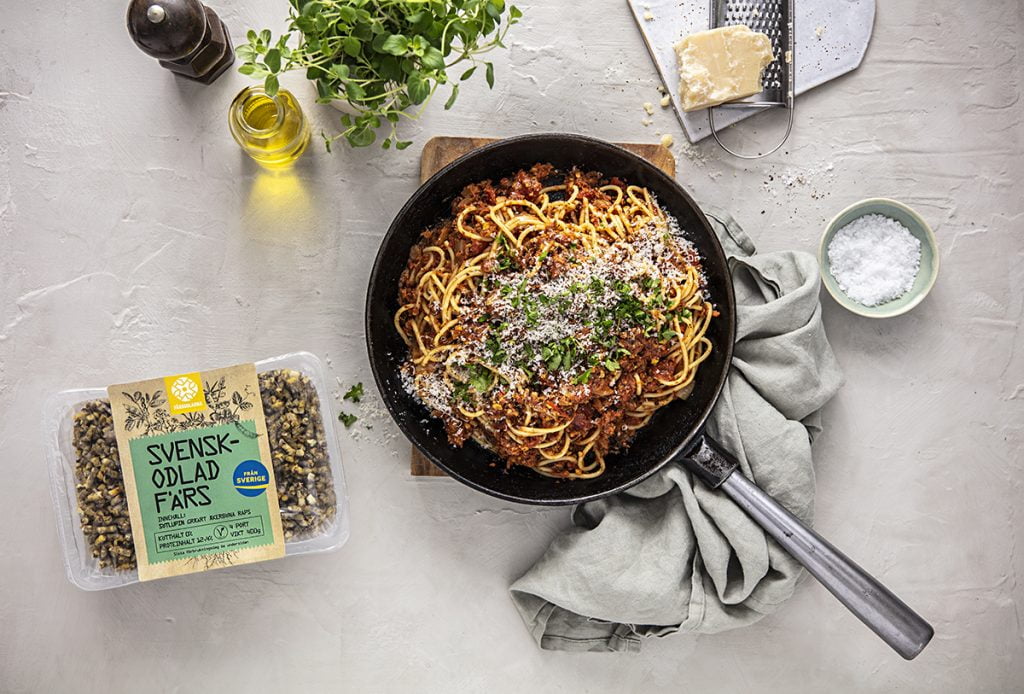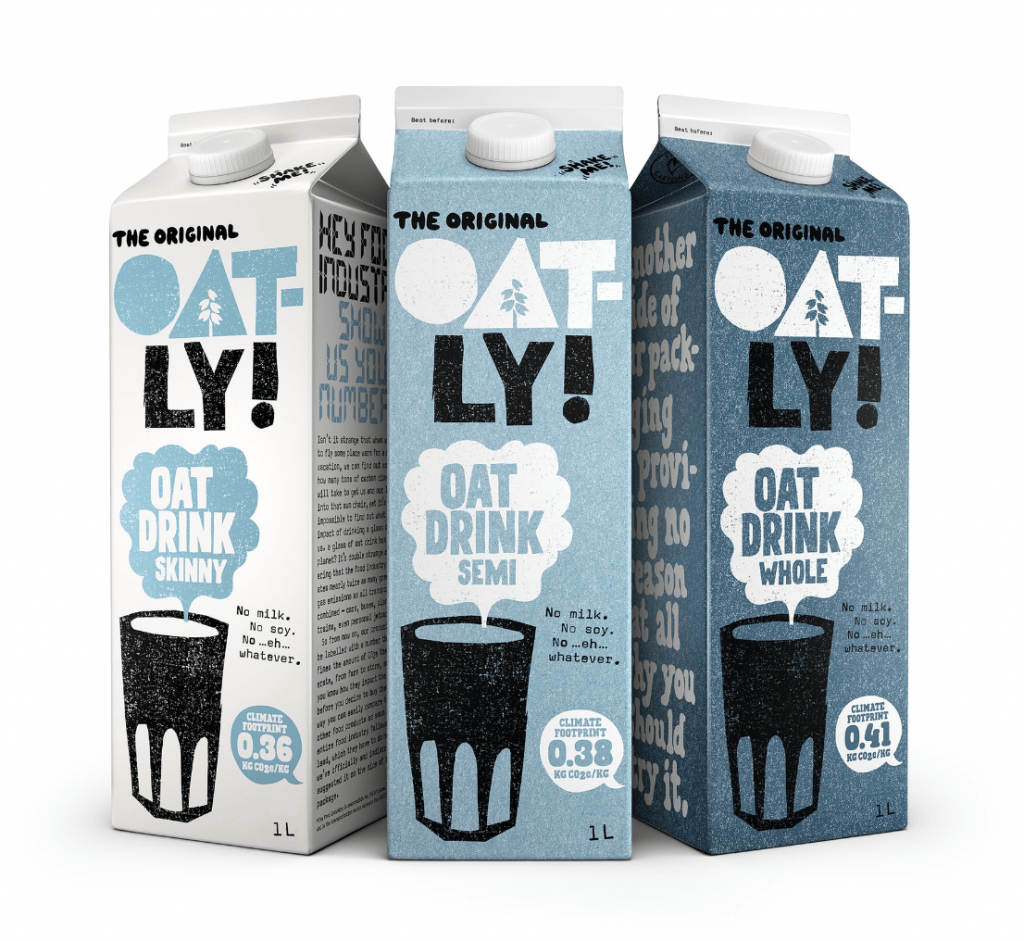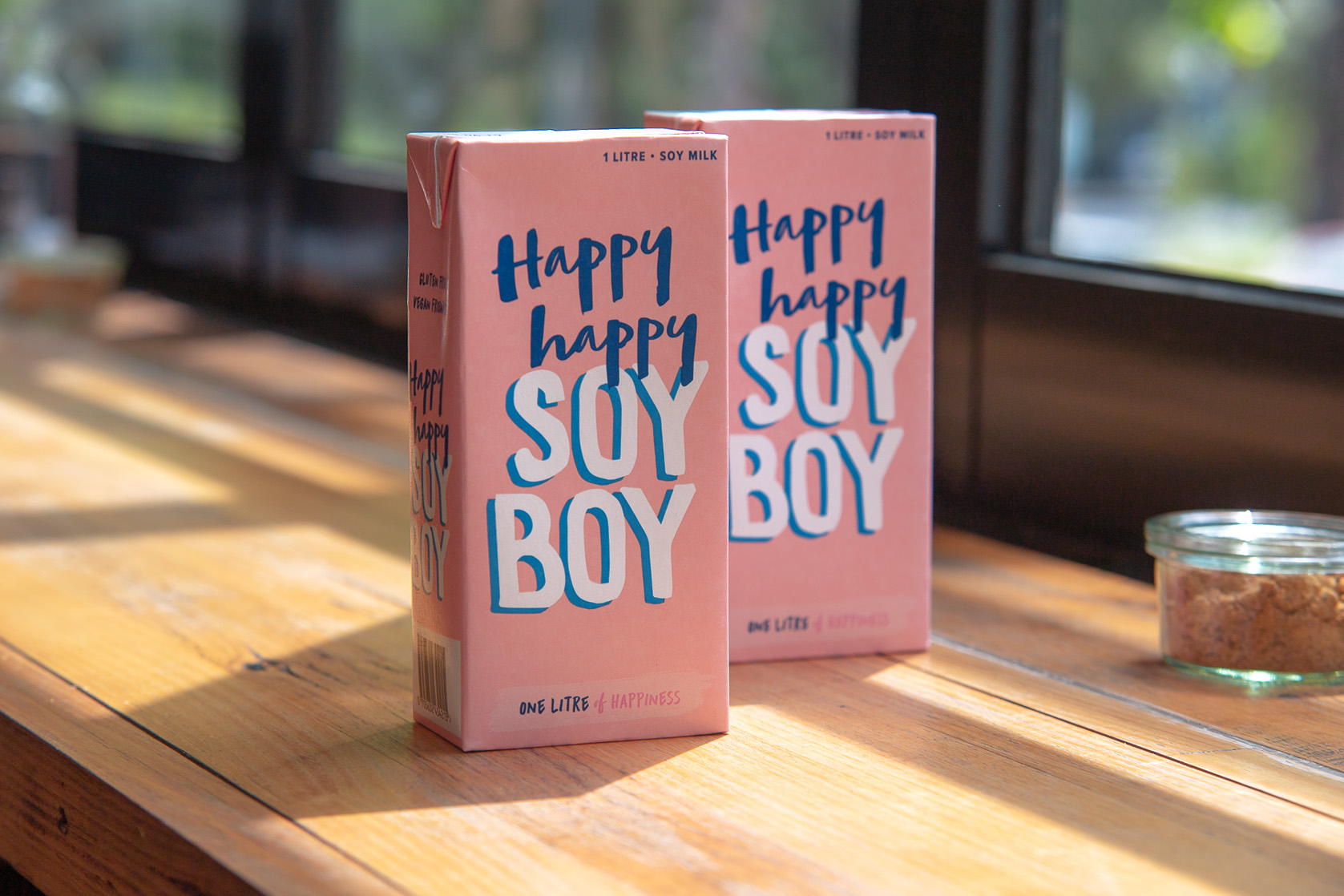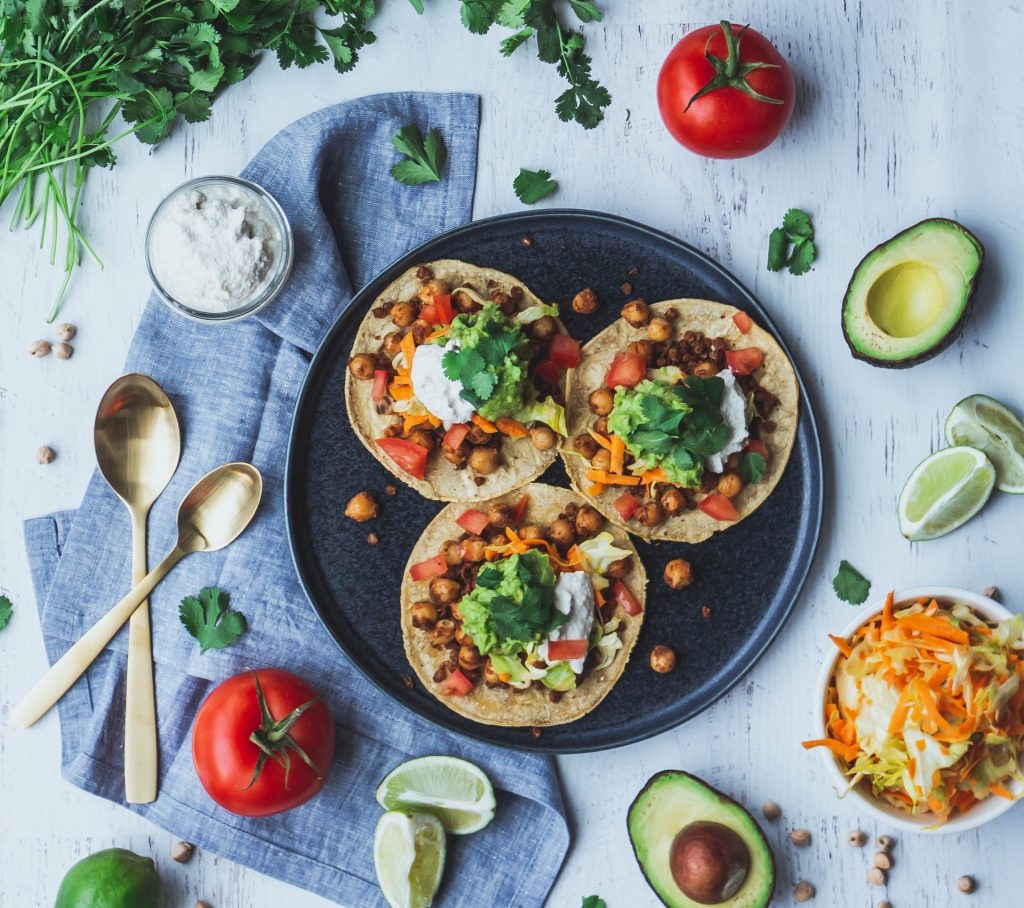Färsodlarna: The climate-smart future of food is here
Färsodlarna are a great representation of how we will eat in the future. The newly founded food brand produces plant-based mince from primarily sweet lupine, broad beans, and grey peas hit the stores in early 2021 and are steadily taking over the Swedish market. Färsodlarna is the commercialization of a legume mince innovation from the non-profit Axfoundation, which focuses on solving sustainability challenges. What was the challenge in this case? The climate impact of a former Swedish-household favorite: Minced beef.
Surely there are plant-based alternatives for minced beef? Yes, but not anything like Färsodlarna. The innovation focused on stepping away from imported soy to instead use locally produced sweet lupine beans, broad beans, and grey peas. The result is high in protein, rich in yield, resembling the cooking process of minced meat, and most importantly – delicious. The legume mince innovation, which later became commercialized as the brand Färsodlarna, won the 2020 Sustainability Initiative of the Year award and the four products hit the shelves in March 2021 – proudly wearing their climate footprints. Now Färsodlarna’s products, Svenkodlad färs, are available in more than 700 grocery stores in Sweden and advertised on national TV!
We spoke with Oddgeir Hole, CEO of Färsodlarna to learn more about their take on climate impact in the food industry and Färsodlarna’s ambitious plans.
Climate-friendly from conception
A primary reason for the speedy uptake of Svenskodlad färs was climate impact. The primary goal of the products is to make it as easy as possible for consumers to change to a plant-based alternative that is as climate-friendly as possible. So, when we asked Oddgeir ‘Why did you go with climate footprints?’, it almost felt like a void question – Minimum climate impact was one of the reasons the products came into existence.

Climate impact was the whole reason behind the invention. There are simply too many cows, and we eat too much of them, so we wanted to come up with a delicious product that makes it easy for consumers to change to plant-based and minimize their climate footprints. We went for CarbonCloud’s climate footprints of CO2 equivalents because it is measurable, it has a huge impact, and it depicts the difference with methane-heavy products without confusing consumers.
Oddgeir Hole
CEO of FärsodlarnaWhat has methane got to do with it? It all ties back to the high consumption of cow products: Oddgeir is keen on hueing the difference simply switching one beef Bolognese meal with Svenkodlad färs can make – and he does it with CO2 equivalent example.
Every time we manage to make a switch from minced beef, we are saving 11.2 kg of CO2e. Basically, swapping one dinner equates to a 88km drive (in a VW Passat 2.0 TDI station wagon).
Low climate footprints beyond the plant-based basis
For Färsodlarna there were few surprises for their low climate footprints; it was simply a confirmation. This confirmation did not just veil over the plant-based nature of the mince. Färsodlarna products are based on three protein-rich ingredients and one by-product: Sweet lupine, grey peas, broad beans, and rapeseed paste. As Oddgeir tells us, a lot of plant-based mince products contain an array of ingredients, including soy, which in certain areas can have a climate footprint higher than pork, and protein powder, a chemically isolated ingredient. Moreover, the production is really simple: Soak in water, boil gently, blend with rapeseed paste, mince. As Oddgeir amplifies:
It is high-tech because it is low-tech.
Plant-based food has advanced – Will the rest of the industry follow?
Oddgeir describes that there is more than simply ‘plant-based’ that consumers are looking for. The selection criterion used to be binary; vegetarian–non-vegetarian. But with more vegetarian options, consumers are looking for more: Taste, low climate footprint, local production.
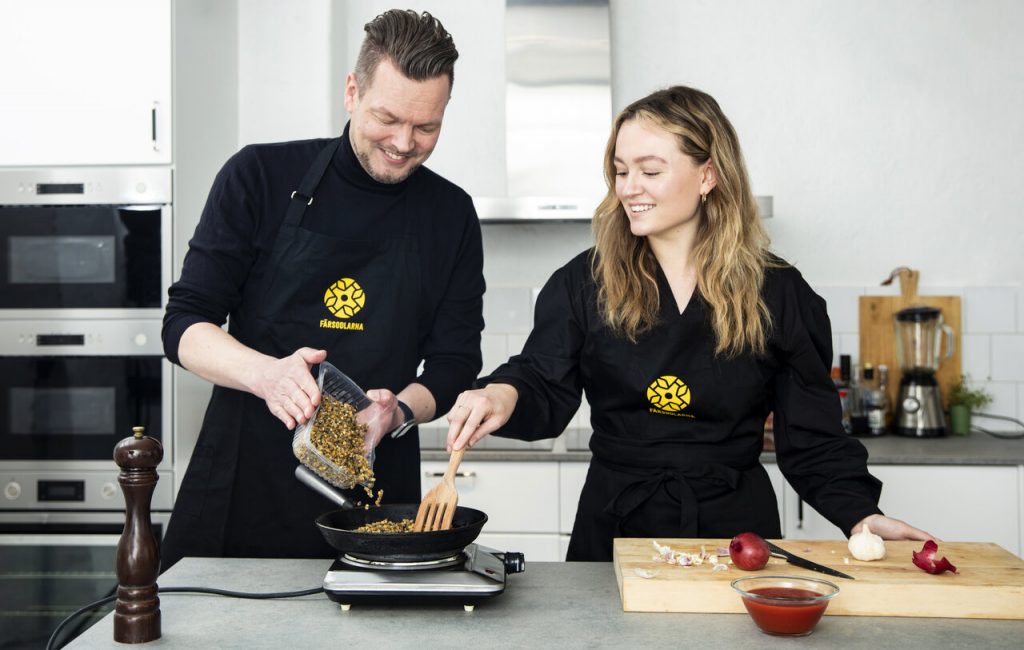
Färsodlarna are the type of food brand that do ‘future’ casually – they don’t need to adapt; they are there already. Like most forward thinkers, Oddgeir is quite aghast with the status quo of the food industry and relative legislations not picking up on the change in consumer behavior.
Look at the car industry – everyone is switching to hybrids and electric cars. Some food brands with a huge climate impact still get subsidies to continue doing what they are doing – there is no whip.
So here it is! A glimpse of the future of food: climate-friendly meals that are easy, delicious, and casual. Did we mention that the climate footprint is only 0.87kg CO2e per kilo?
Related Posts
Hey Oatly – Show us your climate strategy!
Oatly is a global inspiration regarding its climate strategy and communication. Since its initial boom, Oatly made noise challenging the entire food industry to show their numbers – and you may imag
Happy Happy Foods: What’s a latte with a lower climate footprint? A Happy Happy Latte
If we say “purpose-driven company”, what are you thinking of? If Happy Happy Foods is not the first to pop in mind, then we can assure you it is the most authentic. Happy Happy Foods set out to cr
What is Veganuary? The wonderful ripple-effect of a movement
Veganuary is a growing trend that challenges people to live a vegan lifestyle for the month of January. The campaign started in the UK in 2014 and has since spread globally and gained the support of p

